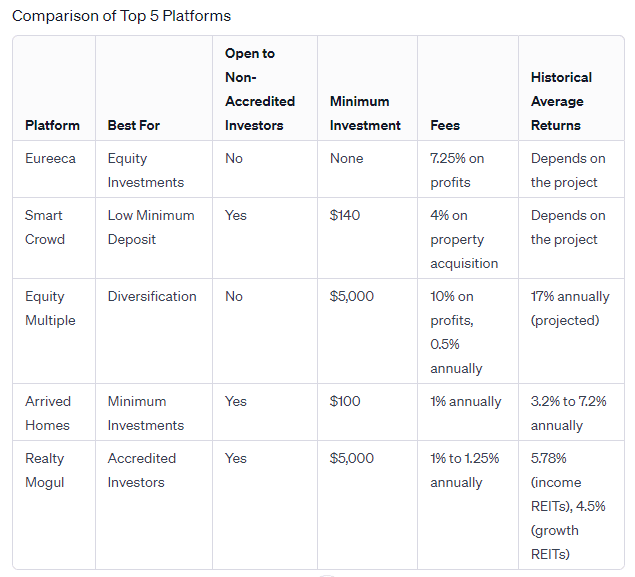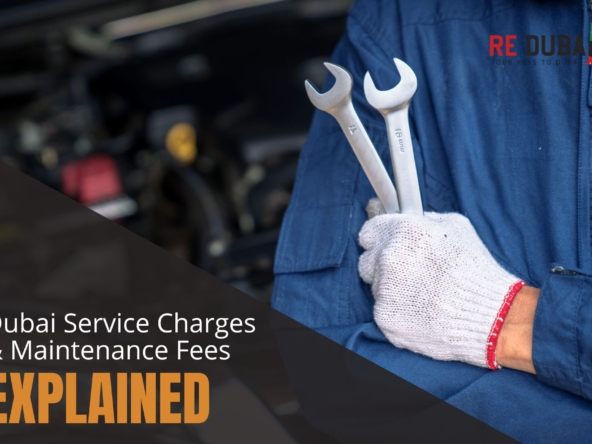Siddiq Farid, CEO, and co-founder of Smart Crowd, shares insights about real estate crowdfunding, a game-changer for investors looking to explore property opportunities in Dubai. Let's delve into the transformative landscape of Dubai real estate crowdfunding and understand the significance of this model in reshaping traditional investment paradigms.

The Landscape of Dubai Real Estate Crowdfunding
Real estate crowdfunding in Dubai is a relatively new concept, with Smart Crowd at the forefront, democratizing property investments. Investors can pool resources for shared ownership, making real estate accessible with amounts as low as a few thousand dirhams. Farid emphasizes how this model revolutionizes traditional investment approaches.
How Real Estate Crowdfunding Works
Smart Crowd's 100-point proprietary screening tool selects viable properties for investment. With minimal contributions starting at $140 (AED 500), investors receive returns through rental income and potential capital gains. The platform ensures transparency and security, distinguishing itself from other crowdfunding platforms in Dubai.
Comparative Analysis: Crowdfunding vs Traditional Investment
Real estate investment has evolved with the advent of crowdfunding platforms, introducing a novel approach that differs markedly from traditional models. This comparative analysis delves into the distinctions, advantages, and potential risks associated with real estate crowdfunding versus traditional investment methods.

1. Entry Costs:
Traditional Investment:
- High Entry Threshold: Traditional real estate investments often demand substantial capital, making it challenging for small-scale investors to participate.
Crowdfunding:
- Lower Entry Costs: Crowdfunding platforms enable investors to enter the real estate market with comparatively lower capital, democratizing access for a broader range of investors.
2. Risk and Diversification:
Traditional Investment:
- Concentration Risk: Traditional investors may face concentrated risks, particularly when investing in a single property or market.
Crowdfunding:
- Risk Mitigation through Diversification: Crowdfunding allows investors to diversify across multiple projects, minimizing the impact of poor-performing assets on the overall portfolio.
3. Project Selection and Vetting:
Traditional Investment:
- Limited Information: Traditional investors may rely on limited information and personal research for property selection, potentially leading to suboptimal investment decisions.
Crowdfunding:
- Vetted Opportunities: Crowdfunding platforms often conduct rigorous due diligence on listed projects, providing investors with vetted opportunities and detailed project information.
4. Liquidity:
Traditional Investment:
- Limited Liquidity: Traditional real estate investments are illiquid, with the process of buying or selling properties being time-consuming.
Crowdfunding:
- Enhanced Liquidity: Crowdfunding offers relatively better liquidity, allowing investors to buy and sell shares in real estate projects more efficiently.
5. Regulatory Considerations:
Traditional Investment:
- Standard Regulations: Traditional real estate investments adhere to standard regulations, with transactions subject to traditional legal processes.
Crowdfunding:
- Platform-Specific Regulations: Crowdfunding platforms operate under specific regulations, necessitating investors to understand and comply with platform-specific rules.
6. Decision-Making Involvement:
Traditional Investment:
- Direct Involvement: Traditional investors are directly involved in property management decisions, which can be time-consuming.
Crowdfunding:
- Passive Investment: Crowdfunding allows for passive investment, where investors can participate without the direct responsibilities of property management.
7. Accessibility:
Traditional Investment:
- Restricted Access: Traditional real estate investment can be exclusive, limiting participation to high-net-worth individuals or institutional investors.
Crowdfunding:
- Inclusive Access: Crowdfunding platforms provide inclusive access, allowing a diverse range of investors, including retail investors, to participate in real estate projects.
Real estate crowdfunding revolutionizes investment with lower costs and diversification. Choose based on preference and risk tolerance—traditional for control, crowdfunding for accessibility and vetting.
Regulatory Framework
Dubai's real estate crowdfunding operates within the regulatory framework set by the Dubai Financial Services Authority (DFSA). Regulations focus on debt and equity crowdfunding, with Smart Crowd uniquely positioned as an asset-backed crowdfunding platform, ensuring a lower-risk profile.
Benefits of Crowdfunding in Dubai
Farid highlights the benefits of real estate crowdfunding, emphasizing its low cost, risk division, and accessibility. It provides opportunities for both small and large investors to participate in Dubai's real estate market, facilitating diversification and being particularly beneficial for first-time investors.
Crowdfunding Platforms in Dubai, UAE
Real estate crowdfunding has gained popularity among retail investors in the UAE as it provides exposure to real estate without the challenges of direct property ownership. This guide evaluates 5 crowdfunding platforms accepting UAE clients, ranking them based on equity investments, fees, minimum investments, annual returns, user base, reinvestment options, and accreditation requirements.
Top 5 Real Estate Crowdfunding Platforms in UAE
- Eureeca – Best For Equity Investments
Founded in 2013, Eureeca offers access to pre-IPO companies and start-ups.
Features a vetting process ensuring reputability of listed real estate.
No minimum investment requirement, 7.25% management fee on profits. - Smart Crowd – Top For Low Minimum Deposit Requirements
Regulated by DFSA, Smart Crowd is the first fully regulated digital platform in MENA.
Utilizes a 100-point proprietary screening tool for property selection.
Low minimum investment of $140 (AED 500), 4% transaction fee. - Equity Multiple – Ideal For Diversification
Founded in 2015, Equity Multiple offers historical average returns of 17%.
Requires a minimum investment of $5,000, charges 10% on profits, and 0.5% service commission. - Arrived Homes – Best For Minimum Investments
Regulated by SEC, Arrived Homes accepts non-accredited investors.
Minimum investment of $100, one-time sourcing fee of 1%, annual management fees.
Backed by billionaire Jeff Bezos, received positive reviews from various rating platforms. - Realty Mogul – Top For Accredited Investors
Founded in 2013, Realty Mogul has generated over $70 million in real estate investments.
Accepts non-accredited investors with a minimum investment of $5,000.
Charges 1% to 1.25% annually on the total real estate investment portfolio.
Comparison of Top 5 Platforms

Criteria for Choosing a Crowdfunding Platform
- Investment Minimums: Choose platforms with minimum investments that match your budget.
- Investment Opportunities: Look for platforms with a wide range of investments, better terms, and returns.
- Due Diligence Process: Platforms with thorough vetting processes are preferred.
- Platform Fees: Opt for platforms with lower fees to enhance profitability.
- Transparency: Platforms providing detailed information and transparent terms are recommended.
- Reputation: Consider the number of users, positive feedback, and regulatory compliance for a reputable platform.
Selecting the right real estate crowdfunding platform in the UAE requires thorough research. This guide simplifies the process by comparing and evaluating the top choices, offering insights into different trading goals and preferences.
Risks and Considerations
Despite the lucrative opportunities real estate crowdfunding presents, investors must be cognizant of associated risks. This section delves into potential pitfalls and considerations that investors should bear in mind when participating in crowdfunding platforms in Dubai.
Operational Risks
- Due Diligence Deficiency:
Risk: Inadequate due diligence on the part of investors may result in selecting platforms with questionable practices.
Consideration: Investors should thoroughly research platforms, reviewing their vetting processes, historical performance, and user feedback. - Platform Reliability:
Risk: Technical glitches or platform downtime may hinder investment processes and impact overall user experience.
Consideration: Choosing platforms with a robust technical infrastructure and positive reviews can mitigate the risk of operational disruptions.
Fraud Risks
- Unregulated Platforms:
Risk: Investing in unregulated platforms can expose investors to fraudulent activities and lack of legal protection.
Consideration: Opting for platforms regulated by financial authorities, such as the DFSA, ensures adherence to legal standards and enhances investor security. - Misrepresentation of Projects:
Risk: Some platforms may exaggerate potential returns or misrepresent the true nature of real estate projects.
Consideration: Investors should critically analyze project details, cross-referencing information, and consulting reviews to validate the authenticity of claims.
Financial Risks
- Market Volatility:
Risk: Real estate markets can experience fluctuations, impacting the value and returns of investments.
Consideration: Diversifying investments across different projects and markets can help mitigate the impact of localized market fluctuations. - Liquidity Challenges:
Risk: Real estate investments typically lack the liquidity of traditional financial assets, making it challenging to quickly sell or exit positions.
Consideration: Investors should be prepared for longer investment horizons and carefully assess their liquidity needs before committing funds.
Regulatory Risks
- Changing Regulatory Landscape:
Risk: Evolving regulations may impact the operational model of crowdfunding platforms, leading to changes in fees or investment structures.
Consideration: Staying informed about regulatory developments and selecting platforms adaptable to evolving legal frameworks is crucial. - Accreditation and Investor Qualifications:
Risk: Non-compliance with accreditation requirements or inadequate investor qualifications can pose legal challenges.
Consideration: Investors must understand and adhere to platform-specific accreditation criteria, ensuring compliance with legal standards.
Considerations for Mitigating Risks
- Diversification: Diversifying investments across multiple platforms and projects helps spread risk and minimize the impact of underperforming assets.
- Thorough Research: Investors should not solely rely on platform-provided information. Conducting independent research and seeking professional advice is essential.
- Legal Counsel: Seeking legal counsel before committing to significant investments can provide clarity on legal implications and potential risks.
- Continuous Monitoring: Regularly monitoring the performance of chosen platforms and staying updated on market trends and regulatory changes is crucial.
While real estate crowdfunding platforms in Dubai offer attractive investment opportunities, understanding and mitigating associated risks is paramount. Investors should exercise due diligence, prioritize regulatory compliance, and implement strategies such as diversification to enhance the resilience of their real estate crowdfunding portfolios. By being aware of potential risks and adopting prudent investment practices, investors can navigate the dynamic landscape of real estate crowdfunding with greater confidence.
Future Outlook
Anticipating robust growth, real estate crowdfunding in Dubai is poised for expansion. Emerging laws, retiree visas, and the pre-Expo 2020 property surge signal a promising trajectory. These factors suggest a rising tide of interest, fostering a dynamic real estate crowdfunding landscape in the foreseeable future.

Real estate crowdfunding in Dubai represents a revolutionary approach to property investment. Siddiq Farid's insights, particularly through Smart Crowd, illustrate the potential for investors to access the Dubai real estate market with minimal entry barriers. As the market evolves, real estate crowdfunding is poised to play a pivotal role in shaping the investment landscape in Dubai, offering a dynamic and accessible avenue for diverse investors.




